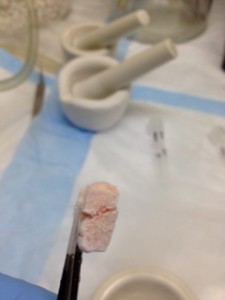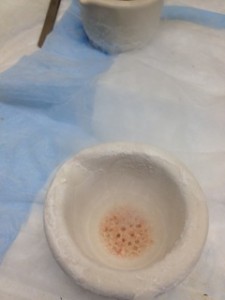This summer I have been assisting in Alzheimer’s research at Duke University Medical Center. We are studying the role that a specific mitochondrial transmembrane protein, called TOMM40, plays in the appearance of Late Onset Alzheimer’s Disease. TOMM40 is a channel protein, part of the Tom (Translocase of Outer Membrane) Complex, which plays an essential role in the importation of preproteins into the mitochondria. A genetic correlation has yet to be found between TOMM40 and APOE, considered the most influential genetic factor concerning Late Onset Alzheimer’s disease; however, mitochondrial disfunction is a recognizable effect of Alzheimer’s, which may or may not be attributed to mutated TOMM40 protein. In lab, I have performed pulverizations, homogenizations, protein determinations, and Western Blotting on both transvected mouse brains (offspring of heterozygous mice to progeny TOMM40 gene as well as a transvected human TOMM40 gene) and flash-frozen human brain tissue samples. Not only has this been a hugely educational experience, it has also been really entertaining using all of the instrumentation as well as handling liquid nitrogen despite a few instances of cold burn. My position at Duke is as a volunteer unpaid intern, but the experience is invaluable. I highly recommend to all biology majors that if the opportunity to participate in a biologic or chemical lab is available, be it paid or unpaid, take the chance because it is a prime time opportunity to participate in a collaborative environment that we are all working towards each year at H-SC.
Biology Department
individually tailored preparation for graduate and professional work


